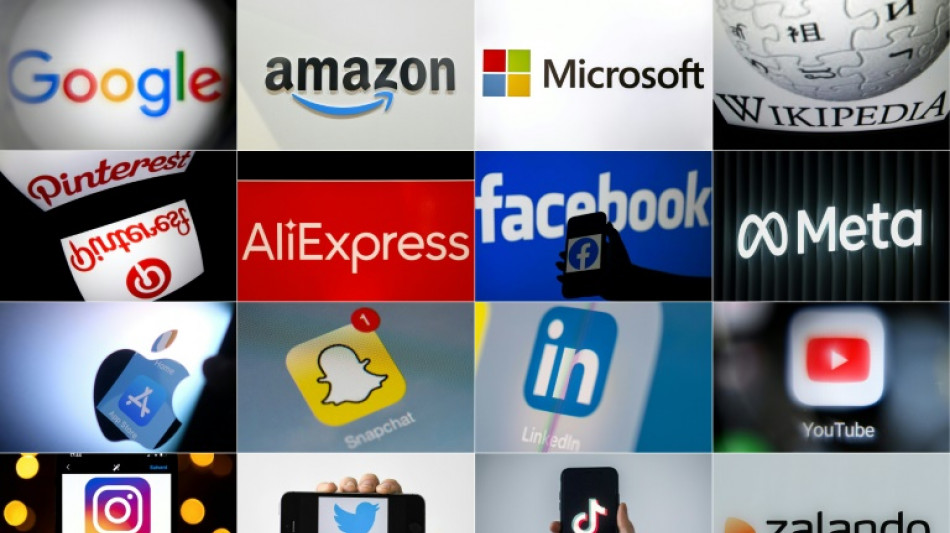
-
 US snowboard star Kim stays on track for historic Olympic hat-trick
US snowboard star Kim stays on track for historic Olympic hat-trick
-
The obstacles to holding war-time elections in Ukraine

-
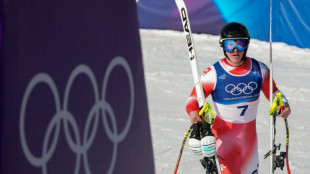 History-maker Von Allmen wins third Olympic gold
History-maker Von Allmen wins third Olympic gold
-
Depleted Australia reach 182-6 as skipper Marsh ruled out of Ireland clash

-
 Dutch court orders investigation into China-owned Nexperia
Dutch court orders investigation into China-owned Nexperia
-
US snowboard star Kim stays on track for Olympic hat-trick

-
 Spurs sack Frank after miserable eight-month reign
Spurs sack Frank after miserable eight-month reign
-
Stock markets mixed, dollar dips before US jobs data
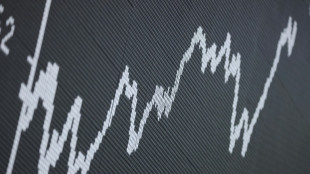
-
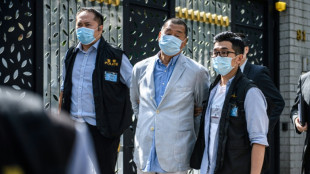 Hong Kong journalists face 'precarious' future after Jimmy Lai jailed
Hong Kong journalists face 'precarious' future after Jimmy Lai jailed
-
French AI firm Mistral to build data centres in Sweden

-
 Frank sacked by Spurs after Newcastle defeat
Frank sacked by Spurs after Newcastle defeat
-
South Africa pip Afghanistan in double super over T20 thriller

-
 Three Ukrainian toddlers, father, killed in Russian drone attack
Three Ukrainian toddlers, father, killed in Russian drone attack
-
Siemens Energy trebles profit as AI boosts power demand

-
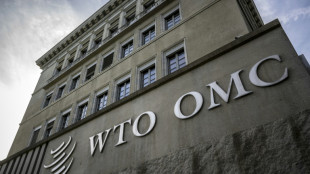 WTO must reform, 'status quo is not an option': chief
WTO must reform, 'status quo is not an option': chief
-
European airlines warn of 'severe disruption' from new border checks

-
 French rape survivor Gisele Pelicot to reveal pain and courage in memoirs
French rape survivor Gisele Pelicot to reveal pain and courage in memoirs
-
EU eyes tighter registration, no-fly zones to tackle drone threats
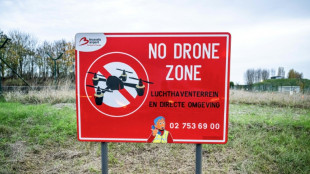
-
 Shooter kills 9 at Canadian school, residence
Shooter kills 9 at Canadian school, residence
-
Australia captain Marsh out of World Cup opener, Steve Smith to fly in

-
 Spanish PM vows justice, defends rail safety after deadly accidents
Spanish PM vows justice, defends rail safety after deadly accidents
-
Meloni and Merz: EU's new power couple
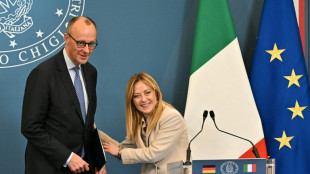
-
 Veteran Tajik leader's absence raises health questions
Veteran Tajik leader's absence raises health questions
-
EU must 'tear down barriers' to become 'global giant': von der Leyen

-
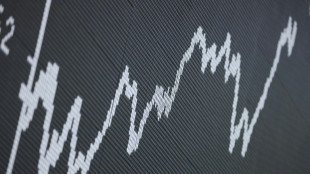 Stock markets rise, dollar dips as traders await US jobs
Stock markets rise, dollar dips as traders await US jobs
-
US grand jury rejects bid to indict Democrats over illegal orders video
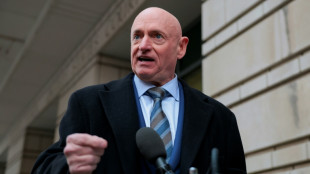
-
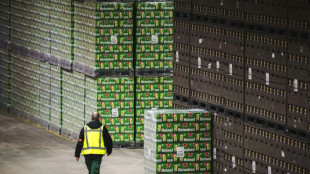 Struggling brewer Heineken to cut up to 6,000 jobs
Struggling brewer Heineken to cut up to 6,000 jobs
-
Asian stock markets rise, dollar dips as traders await US jobs
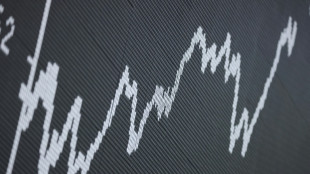
-
 Britain's Harris Dickinson on John Lennon, directing and news overload
Britain's Harris Dickinson on John Lennon, directing and news overload
-
9 killed in Canada mass shooting that targeted school, residence

-
 Wembanyama scores 40 as Spurs rout Lakers, Pacers stun Knicks
Wembanyama scores 40 as Spurs rout Lakers, Pacers stun Knicks
-
UK's crumbling canals threatened with collapse

-
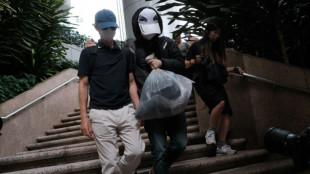 Hong Kong convicts father of wanted activist over handling of funds
Hong Kong convicts father of wanted activist over handling of funds
-
Australia charges two Chinese nationals with foreign interference
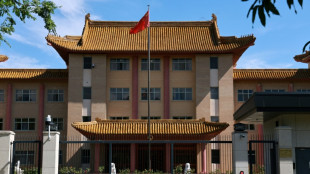
-
 'Overloading' may have led to deadly Philippine ferry sinking
'Overloading' may have led to deadly Philippine ferry sinking
-
Bangladesh to vote on democratic reform charter

-
 China coach warns of 'gap' ahead of Women's Asian Cup title defence
China coach warns of 'gap' ahead of Women's Asian Cup title defence
-
Glitzy Oscar nominees luncheon back one year after LA fires

-
 Pacers outlast Knicks in overtime
Pacers outlast Knicks in overtime
-
9 killed in Canada mass shooting that targeted school, residence: police

-
 De Zerbi leaves Marseille 'by mutual agreement'
De Zerbi leaves Marseille 'by mutual agreement'
-
Netanyahu to push Trump on Iran missiles in White House talks

-
 England captain Stokes has surgery after being hit in face by ball
England captain Stokes has surgery after being hit in face by ball
-
Rennie, Joseph lead running to become next All Blacks coach

-
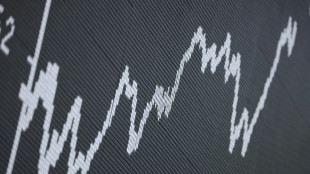 Asian stock markets mixed as traders weigh US data, await jobs
Asian stock markets mixed as traders weigh US data, await jobs
-
Australian Olympic snowboarder airlifted to hospital with broken neck

-
 Moderna says US refusing to review mRNA-based flu shot
Moderna says US refusing to review mRNA-based flu shot
-
Instagram boss to testify at social media addiction trial

-
 'Artists of steel': Japanese swords forge new fanbase
'Artists of steel': Japanese swords forge new fanbase
-
New York model, carved in a basement, goes on display


Big tech to face full force of new EU law
The world's biggest digital companies will have nowhere to hide starting Friday, when the toughest EU rules on online content since social media first burst onto the scene enter into force.
The landmark law is part of the European Union's legal arsenal deployed to bring tech companies to heel and enforce order in what officials have described as an online "Wild West".
The Digital Services Act (DSA) forces companies to more aggressively police digital content and protect online users from disinformation and hate speech, or face the risk of heavy fines.
From Friday, all eyes will be on how the platforms comply and on how the DSA will change online life in Europe, with experts predicting it could trigger a wave of change beyond the bloc.
"The DSA is part of a bigger strategy to give more power to individuals, to the regulators, to civil society," said Suzanne Vergnolle, a professor of technology law at the National Conservatory of Arts and Crafts in Paris.
"It is another step towards more accountability," she told AFP.
Under the DSA, sites with at least 45 million active monthly users must obey more stringent rules including annual compliance audits and a duty to effectively counter disinformation.
In April, the EU named 19 sites including the Amazon Store, Apple's AppStore, and Google's Play, Maps and Shopping, and clothing retailer Zalando, as well as the social media giants Instagram, LinkedIn, Pinterest, Snapchat, TikTok, YouTube and Twitter (now rebranded X) and the search engines from Google and Microsoft's Bing.
Even before the rules kick in, Amazon and Zalando have filed legal challenges, claiming their platforms do not fit the criteria to fall foul of the first wave of regulation.
- Rush to comply -
Despite the potential impact of the changes, individual users will not suddenly wake up next week and instantly feel the DSA's effects.
"It's something where we're already starting to see trickles of it in terms of platforms proactively going about doing their compliance," said John Albert of AlgorithmWatch, a nonprofit research and advocacy organisation.
The bloc's top official for enforcing digital regulation, industry commissioner Thierry Breton, said companies "had now enough time to adapt their systems to their new obligations".
"My services and I will thoroughly enforce the DSA, and fully use our new powers to investigate and sanction platforms where warranted," he told AFP.
That was on full display in changes heralded by companies this summer.
For example, Facebook- and Instagram-owner Meta and TikTok announced in August steps they would take to comply, including giving European users more control over how they view content, with the option to opt out of recommendations based on profiling.
The EU will be looking particularly at X since billionaire Elon Musk took over the Twitter platform last year, taking decisions over content that have provoked concerns over compliance.
Breton has previously warned Musk, who has embarked on a cost-cutting drive for the platform, that X needs enough resources to moderate dangerous content.
Google, meanwhile, says it has not waited for the DSA's rules to apply, and has already implemented policies aimed at greater transparency and accountability.
The European Commission said that despite the legal challenges, companies must still comply.
- Risk of fines -
EU officials say more companies could be added to the list.
Violating the rules could lead to fines of up to six percent of a company's global revenue, or even a ban.
Meanwhile, another EU law is looming for big tech firms.
Next month, the bloc will name which tech companies have to obey tougher competition rules under the new Digital Markets Act (DMA).
In July, Brussels published a list of companies deemed to be "gatekeepers" including Amazon, Apple, TikTok's owner ByteDance, Google, Meta, Microsoft and Samsung.
Such a status comes with extra rules that include preventing companies from controlling what apps are pre-installed on phones, or from directing users to their products.
A company in DMA violation risks a fine of up to 10 percent of its annual global revenue.
- Wave of laws -
The DSA and DMA are not the EU's first forays into regulating tech firms' operations.
In 2018, the EU's mammoth GDPR data privacy law came into effect, radically changing the way companies process users' data, with fines for firms that violate the rules.
Brussels is also rushing to pass a law that would be the world's first to regulate artificial intelligence.
The DSA may be limited to Europe, but Vergnolle said its impact could be felt beyond the bloc.
"I think it's going to have like a Brussels effect, as GDPR had before, but it's going to take years," she said.
Since "the platforms will use these tools globally, there is no reason to deprive users outside Europe of them", said Marc Mosse, a senior lawyer at August Debouzy in Paris.
Even for Europe, the new rules are likely to be followed by more intense regulator scrutiny.
"This is a long game. We're just getting started and trying to map what the risks are and how to measure them," Albert said.
O.Farraj--SF-PST

